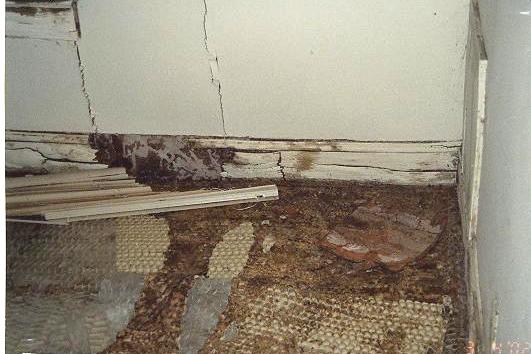Wood Decay Fungi: Licensing and Certification Requirements
The Office of Pesticide Services has received questions about whether businesses which manage molds and other fungi need a Pesticide Business License and whether employees of such businesses must be certified. Under the current law, a pesticide business license is only required if a business applies a pesticide commercially. Any activities which do not involve the use of pesticides would not fall under the scope of the Virginia Pesticide Control Act (Act) or the Regulations Pursuant to the Virginia Pesticide Control Act (Regulations). This would include inspections for molds and other fungi, physical removal of mold or infested materials, installation of vapor barriers or ventilation fans, and other environmental modifications.

The Act and related Regulations require businesses that apply pesticides, such as fungicides, to be licensed if they apply the products commercially unless exempted by law. Currently, the only activities which require licensing are those that involve the treatment of fungi which cause structural damage to wood (wood-rot fungi). Brown rot (ex. Poria monticola or Serpula lacrymans), White rot (Phellinus magaloporus or Poria Contigua), and Water-conducting (Meruliporia incrassate) fungi are specific examples of wood-rot fungi. If a company uses pesticides to manage or treat for these organisms they would need to have a pesticide business license and have their applicators certified in category 7-B (Wood Destroying Pest Control).
While other molds may grow on the surface of damp wood they may not be considered “wood-rot” fungi. Surface molds, “mildews,” and stain fungi may be found on wood surfaces and be visibly unappealing but do not cause structural degradation and are not considered wood-rot fungi. Typically, the growth of such molds can be managed by reducing the moisture in the areas where they are found. Companies which provide cleaning services to remove such molds that only apply nonrestricted use sanitizers, disinfectants and germicides would not be required to obtain a Pesticide Business License or have certified applicators employed. Although these products are still considered pesticides, the Regulations specifically exempt janitorial or cleaning services from the requirements for certification and licensing. Businesses and applicators would still have to comply with the labels of any pesticides which are used even if licensing and certification is not required.
As discussed above, businesses which treat for wood decay fungus are required to obtain a Virginia Pesticide Business License from VDACS. A business license is not required if a business only uses pesticides to treat for surface molds (i.e. Fusarium spp., Penicillium spp.). All pesticides used to manage mold, mildew or similar organisms must be currently registered for use with the Office of Pesticide Services.
If you are interested in learning more about issues related to mold and mildew visit the Structural Issues Related to Molds and Mildews page of this website.